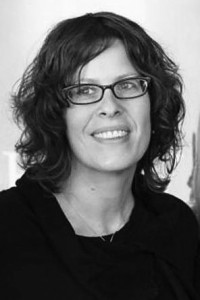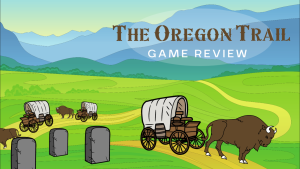
An Oscar nominee made USI’s campus her red carpet April 10, visiting the university and participating in a round-table discussion about “Winter’s Bone,” an award-winning film which she wrote and produced. The movie, which was Jennifer Lawrence’s break-out roll, received four nods from the Oscars in 2011, two for Anne Rosellini’s work.
A chance encounter with German professor Silvia Rode in New York over spring break led to Rosellini’s visit.
Rosellini, 44, is currently partnered with director Debra Granik in a company called Still Rolling Productions.
Aside from the questions she answered during the round-table event held in Carter Hall for an audience of 60, the former Seatlleite took the time to sit down with The Shield and answer some questions about her work and her trip to Indiana.
Q: Where did you receive your education?
A: I got a Bachelor of Fine Arts at the Art Institute of Chicago.
Q: You received quite a few awards for your work on “Winter’s Bone.” How does all the attention make you feel?
A: I think that as a small, independent film that we knew was kind of a dark story and didn’t have any celebrities in it, many of the awards were surprising. We didn’t anticipate that it would play as widely as it did. When you make an independent film, there’s always that fear that it won’t make it past the festival circuit.
Q: How many festivals was the film shown in before it went to DVD?
A: 30 or 40 worldwide
Q: It was the first movie you screen-wrote. What had you done in film prior to that?
A: I studied film theory and film history in Chicago – not so much filmmaking. I love documentaries. I love short films. So when I moved back to Seattle, I started a Short Film Festival there. So for 10 years, I did what us filmmakers call programming for festivals, which means I chose the films that I wanted to play at the festivals. I programmed for the Seattle International Festival, the Women’s Film Festival and my festival once a year. After that, I moved to New York, which is where I began producing. (Rosellini has produced two films.)
Q: Why hadn’t you written anything prior to “Winter’s Bone?”
A: The reason I did it was because we are independent filmmakers, so there is no higher financing body – there’s no studio system that’s going to hand me $30,000 to develop a script. But when I read the book, I didn’t have the money to hire a writer, so I just decided to do it myself.
Q: What feelings raced through you when you found out the movie you wrote was actually going to be produced?
A: There’s not really a moment. Because in independent film, you have to always act as if. Like you kind of have to fake it until you make it. You have to assume that your film is getting made until the moment you find out it’s not. Because you’re pretending it’s going to get made all along, there’s no shock. There’s relief, though. Like, oh, thank God, we found the money to make this.
Q: How was it to work with Jennifer Lawrence?
A: She was really young at the time (2009). I think she had just turned 20. She was great. She was incredibly low-maintenance and very hard working. She could go from joking to being serious very quickly, which made her a great worker. I mean, this film was shot in the Ozarks in the middle of the winter and it was not always comfortable. So she had to suffer through a lot of the scenes that weren’t the best of circumstances. This wasn’t a set with a bunch of sushi. She never complained and did whatever needed to be done to get it shot. She’s a natural. It was fun for me to watch her.
Q: What was it like filming in the Ozarks?
A: The novelist who wrote “Winter’s Bone” lived in the Ozarks and described it so thoroughly in the book. We were worried that we wouldn’t be able to see the world he depicts through our own eyes or convey it on screen. The Ozarks (the hills of southern Missouri) is a very ethnic place. The people are very set in their ways. So when we first arrived, they were like, “no.” We wanted to use them. We wanted to film in their houses. There was one incident when I was looking around on a man’s property and he actually drove up in his truck with a shotgun and asked us what we wanted. We had to earn the trust of the community. And eventually we did, I think. Twenty speaking parts ended up being locals.
Q: Do you prefer producing or writing?
A: I consider myself a producer. A producer wears many hats throughout the process of filmmaking and I like that it allows me to do many different things. I enjoyed the experience of writing and I learned a lot from it and I can imagine myself doing it again if the right project comes along.
Q: What is your advice for students who are interested in screenwriting or filmmaking?
A: I’ll use myself as an example. Even though I had never written a screenplay before, I didn’t let that stop me. I never consulted a manual. I used my instincts. I mean, I had read a lot of scripts. But I didn’t let my inexperience stop me from trying. I didn’t think I had to go out and find the money to hire a writer. It’s kind of like DIY, you know? Do it yourself. If you can’t afford to pay someone to do it, give it a try. As far as filmmaking, you need to soul search why you want to make films. If you want to make films to become famous or to become rich, then you’re going to do a lot of waiting around. But if you want to make films for the right reasons, then I truly believe nothing can stop you. There is no excuse. Get a group of friends together and make a film. That’s the only way you’ll learn.
Q: Do you speak at colleges and universities often?
A: Yes. It’s always a huge pleasure to talk about my experiences and I enjoy encouraging young people to be creative.
Q: Have you ever been to Evansville?
A: I have never been to Indiana. I stepped foot into Gary when I was a college student in Chicago. But this is the first time I’ve really stepped foot on Indiana soil. It’s exciting to be here.
Q: Are you working on anything right now?
A: Yes. Debra (Granik) and I are working on another adaptation. We’re working on a film that will take place in Baltimore. We’re also currently editing a documentary. Then, we have two or three other projects that are in the early script stage. So yeah, we have a lot of things in the hopper. They’re all going to be dark, small and independent because that’s just the way we roll.






